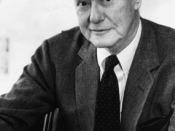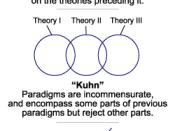We as societies are governed by principles, in which are in no doubt, have and are still influencing the way the world and society is being developed. One of the most critical contributors towards this structure would have to be the dynamic field of science or what others such as sociologists would call the study of the scientific method. Although science as a field is in retrospectively speaking a field which rely on having certain objectives and using particular methods to reach those objectives. These objectives are usually explained by using the term theories, in which are put under scrutiny to reach a proven hypotheses. So as far as science is concerned it is in such that each theory or generalisation is concerned passes through a multiple series of events such as experiments, which are repeated over and over to quantify variables, provide techniques of measurement and apply mathematical and statistical methods to the result, and as such the people who introduced these theories are called theorists.
So accordingly I will try and introduce you to three of these theorists in the science field and compare and contrast their social theories of science and see how if any of their theories suggest that science is a part of the rationalization process in particular of M.Webers rationalization.
The Three theorists in wich I am referring to are R.Merton, B. Barnes and P Feyerabend. Each of these particular individuals as far as we or science is concerned have in no doubt had overwhelming impact on way in which science has evolved and expanded over time. R. Merton or Robert Merton is considered as one of the founding fathers of sociology of science. Merton's special interest is in the mores of science, moral regulations that collectively form the scientific 'etos', constraining the...



Good
you have a very good point and, i agree with the theories, you did a great job, you werent all that persuasive but all in all it was a very good essay, great work!
4 out of 4 people found this comment useful.